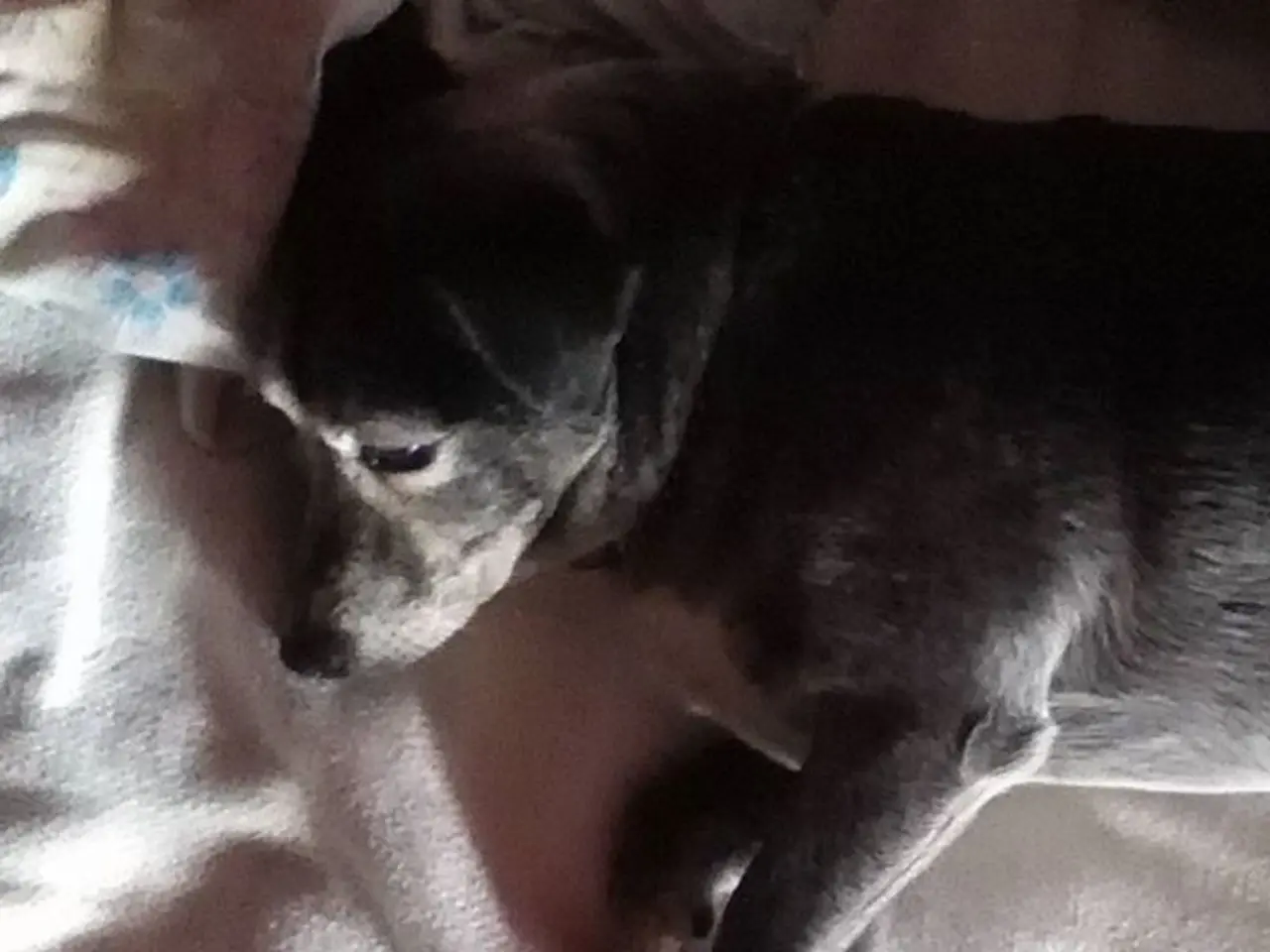Dog's Snoring: A Common Occurrence?
Snoring in dogs, particularly in breeds like Pugs and French Bulldogs, might seem like a harmless nuisance. However, the root cause of this common problem could be a sign of serious health issues.
The Anatomy Behind the Snore
Brachycephalic breeds, known for their shortened, flat faces, have compressed nasal passages and narrowed airways. This unique facial structure contributes to snoring by obstructing air movement. Key anatomical issues include stenotic nares (narrow nostrils), elongated soft palates, hypoplastic tracheas, and everted laryngeal saccules [1][3][5].
Potential Health Risks
The snoring of brachycephalic dogs can lead to several health concerns. Brachycephalic Obstructive Airway Syndrome (BOAS), a critical condition, restricts airflow, causing breathing difficulty, exercise intolerance, and increased risk of heatstroke. Other related issues include overheating, increased airway resistance, chronic airway inflammation, coughing, and even collapse of airways [1][3][5].
Recognising the Need for Veterinary Attention
If your dog suddenly starts snoring unrelated to a specific sleeping position or while awake, book a vet appointment within the next week. For senior dogs, arranging a vet check-up is essential to investigate potential underlying causes. Signs of an urgent veterinary appointment include fast breathing, continuous panting, struggling to breathe, blue-tinged lips or tongue, snoring accompanied by coughing or collapse [2].
Prevention and Management
For affected dogs, weight management and, in severe cases, surgical correction can improve airflow and quality of life. Interventions like soft palate resection, widening nostrils, and even laser surgery are modern methods used to correct these issues [3][4].
Common Misconceptions
A study revealed that 58% of pet parents of dogs with breathing problems like snoring thought their dogs were normal. It's essential to understand that snoring is often a sign of an underlying problem [6].
Other Factors to Consider
Allergies, respiratory diseases, and sleep apnea can also cause snoring in dogs. Allergies can lead to inflammation in a dog's nasal passages, while sleep apnea causes normal breathing to stop during sleep, with the animal waking up suddenly with a snort [7].
At Home Care
At home, consider changing your dog's bed to prevent them from sleeping in positions that cause snoring. A dog bed with raised sides may help in this regard. Some people suggest using a humidifier to make the snore quieter [8].
In conclusion, while snoring in dogs is relatively common, it's often a sign of an underlying problem. Regular veterinary check-ups are crucial for the health and wellbeing of brachycephalic breeds, particularly when it comes to managing snoring and potential health risks associated with it.
[1] Brachycephalic Obstructive Airway Syndrome [2] When to Worry About Snoring in Dogs [3] Brachycephalic Airway Syndrome in Dogs [4] Brachycephalic Syndrome in Dogs [5] Brachycephalic Syndrome [6] Study Finds Most Dogs with Breathing Problems are Misdiagnosed [7] Snoring in Dogs: Causes and Treatment [8] Why Does My Dog Snore?
- Science reveals that snoring in brachycephalic dogs can indicate medical conditions like Brachycephalic Obstructive Airway Syndrome, a significant health concern that impacts respiratory functioning and health-and-wellness.
- Poor sleep habits and sleep apnea in dogs, often marked by snoring, could be signs of medical complications such as respiratory conditions, necessitating a visit to a veterinarian for a proper diagnosis and associated treatment.




